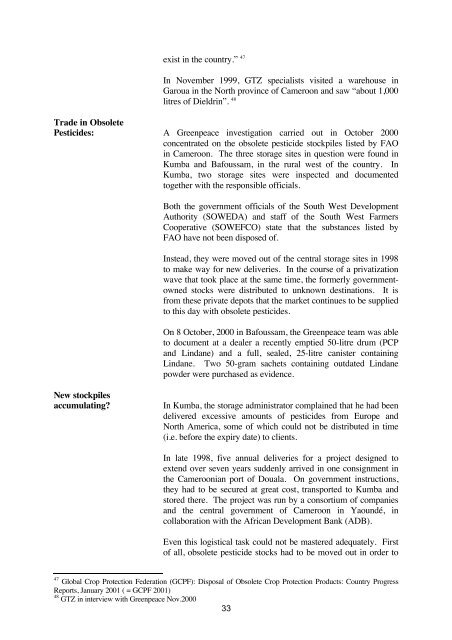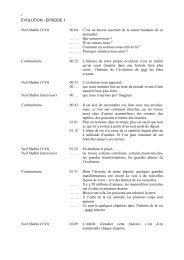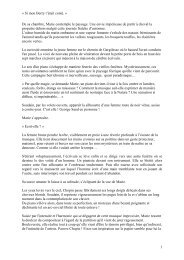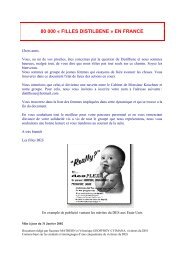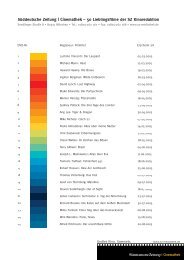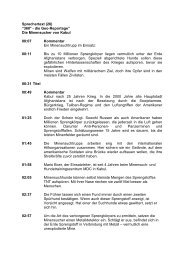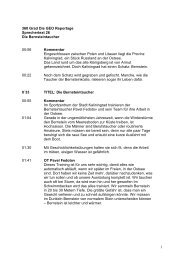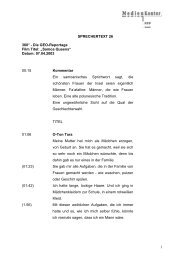POPs IN AFRICA HAZARDOUS WASTE TRADE 1980 - 2000 ... - Arte
POPs IN AFRICA HAZARDOUS WASTE TRADE 1980 - 2000 ... - Arte
POPs IN AFRICA HAZARDOUS WASTE TRADE 1980 - 2000 ... - Arte
Create successful ePaper yourself
Turn your PDF publications into a flip-book with our unique Google optimized e-Paper software.
exist in the country.” 47<br />
In November 1999, GTZ specialists visited a warehouse in<br />
Garoua in the North province of Cameroon and saw “about 1,000<br />
litres of Dieldrin”. 48<br />
Trade in Obsolete<br />
Pesticides: A Greenpeace investigation carried out in October <strong>2000</strong><br />
concentrated on the obsolete pesticide stockpiles listed by FAO<br />
in Cameroon. The three storage sites in question were found in<br />
Kumba and Bafoussam, in the rural west of the country. In<br />
Kumba, two storage sites were inspected and documented<br />
together with the responsible officials.<br />
Both the government officials of the South West Development<br />
Authority (SOWEDA) and staff of the South West Farmers<br />
Cooperative (SOWEFCO) state that the substances listed by<br />
FAO have not been disposed of.<br />
Instead, they were moved out of the central storage sites in 1998<br />
to make way for new deliveries. In the course of a privatization<br />
wave that took place at the same time, the formerly governmentowned<br />
stocks were distributed to unknown destinations. It is<br />
from these private depots that the market continues to be supplied<br />
to this day with obsolete pesticides.<br />
On 8 October, <strong>2000</strong> in Bafoussam, the Greenpeace team was able<br />
to document at a dealer a recently emptied 50-litre drum (PCP<br />
and Lindane) and a full, sealed, 25-litre canister containing<br />
Lindane. Two 50-gram sachets containing outdated Lindane<br />
powder were purchased as evidence.<br />
New stockpiles<br />
accumulating? In Kumba, the storage administrator complained that he had been<br />
delivered excessive amounts of pesticides from Europe and<br />
North America, some of which could not be distributed in time<br />
(i.e. before the expiry date) to clients.<br />
In late 1998, five annual deliveries for a project designed to<br />
extend over seven years suddenly arrived in one consignment in<br />
the Cameroonian port of Douala. On government instructions,<br />
they had to be secured at great cost, transported to Kumba and<br />
stored there. The project was run by a consortium of companies<br />
and the central government of Cameroon in Yaoundé, in<br />
collaboration with the African Development Bank (ADB).<br />
Even this logistical task could not be mastered adequately. First<br />
of all, obsolete pesticide stocks had to be moved out in order to<br />
47<br />
Global Crop Protection Federation (GCPF): Disposal of Obsolete Crop Protection Products: Country Progress<br />
Reports, January 2001 ( = GCPF 2001)<br />
48<br />
GTZ in interview with Greenpeace Nov.<strong>2000</strong><br />
33


